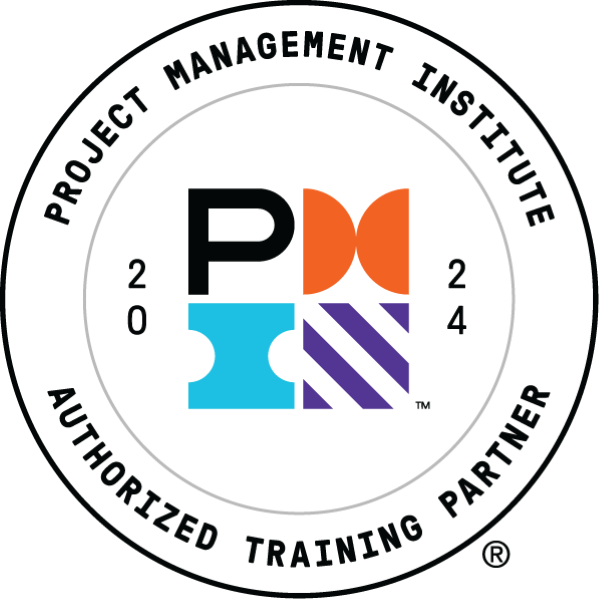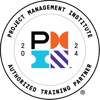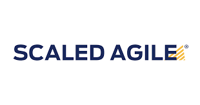Agile Project Management
Discover how Agile Project Management methodologies can revolutionize your company's approach to project planning and development. With its iterative approach, Agile enables teams to quickly adapt to change, prioritize faster deliveries and improve collaboration, resulting in a shorter time to market and continuous process improvement. Explore Agile methodologies, sprints, and scrums to gain a competitive edge in your industry and succeed in today's fast-paced world. Whether you're looking to enhance stakeholder satisfaction, increase productivity or improve project outcomes, Agile project management is the solution you've been searching for. Explore individual courses, or learn how to earn one of our four ICAgile certificates.

- In a fast-paced business environment, traditional project management can struggle to keep up. Agile project management offers a more flexible and iterative approach to project planning and development, allowing teams to respond quickly to changing priorities and demands.
- Are you tired of long project cycles and rigid development processes? Switch to Agile project management and start experiencing faster delivery times, improved stakeholder satisfaction, and better teamwork and communication.
- By breaking down complex projects into smaller, more manageable pieces, Agile project management helps teams stay on track and deliver high-quality work on time and on budget.
- Agile project management is built on a foundation of iterative development and continuous improvement. Sprints and scrums are key concepts within Agile, allowing teams to work in short cycles and regularly reevaluate their progress and priorities.
- With daily scrum meetings and regular sprint cycles, Agile project management ensures that all team members stay up-to-date on progress and can provide real-time feedback to their peers. This leads to faster development times and better collaboration across your organization.
- Sprints and scrums encourage teamwork and accountability, as each team member is responsible for completing their tasks and contributing to the overall success of the sprint.
Agile Project Management FAQ's
What is an Agile Certificate?
- An Agile certificate validates a person's knowledge and skills in Agile project management practices. It demonstrates expertise in Agile methodologies like Scrum or Kanban, helping professionals lead and work effectively in Agile environments. Certifications like Certified ScrumMaster (CSM) or PMI-Agile Certified Practitioner (PMI-ACP) are popular in the field.
What is a project management methodology?
- A project management methodology is a structured approach to planning, executing, and completing projects. It provides guidelines and processes to manage tasks and teams effectively. Common methodologies include Waterfall (linear and sequential), Agile (iterative and flexible), and Lean (focused on efficiency). The right methodology depends on the project’s needs and goals.
How does Agile differ from other project management methodologies?
- Agile differs from other methodologies by being iterative, flexible, and focused on continuous improvement. Unlike traditional methods like Waterfall, which follow a linear, step-by-step process, Agile breaks projects into small, manageable increments called sprints. This allows teams to adapt to changes quickly, prioritize customer feedback, and deliver working solutions regularly. Agile emphasizes collaboration, customer involvement, and responding to change over following a fixed plan.
What Is an Agile Mindset?
- An Agile mindset is a way of thinking focused on flexibility, collaboration, and continuous improvement. It encourages teams to adapt quickly to change, prioritize customer needs, and deliver value through iterative processes. This mindset values learning from feedback and fostering an open, growth-oriented culture.
Why is Agile important in project management?
- Agile is important in project management because it promotes flexibility, faster delivery, and customer satisfaction. By breaking projects into smaller, manageable tasks, teams can adapt to changes quickly and deliver value incrementally. Agile fosters collaboration, encourages regular feedback, and helps teams continuously improve, making it ideal for dynamic projects where requirements evolve over time. This approach leads to better results and higher adaptability in complex environments.
Can I earn Professional Development Units (PDUs) from your classes and Roundtables?
- Yes, you absolutely can earn PDUs. Visit this page to learn more about all things related to PDUs from the Project Management Institute (PMI):
https://tlcenter.wustl.edu/pmi-pdu-faq
Project Management Roundtables
Join a diverse community of project managers for impactful discussions exploring cutting-edge practices and breakthrough innovations. Watch the video to learn more about how you and your organization can join the conversation.



